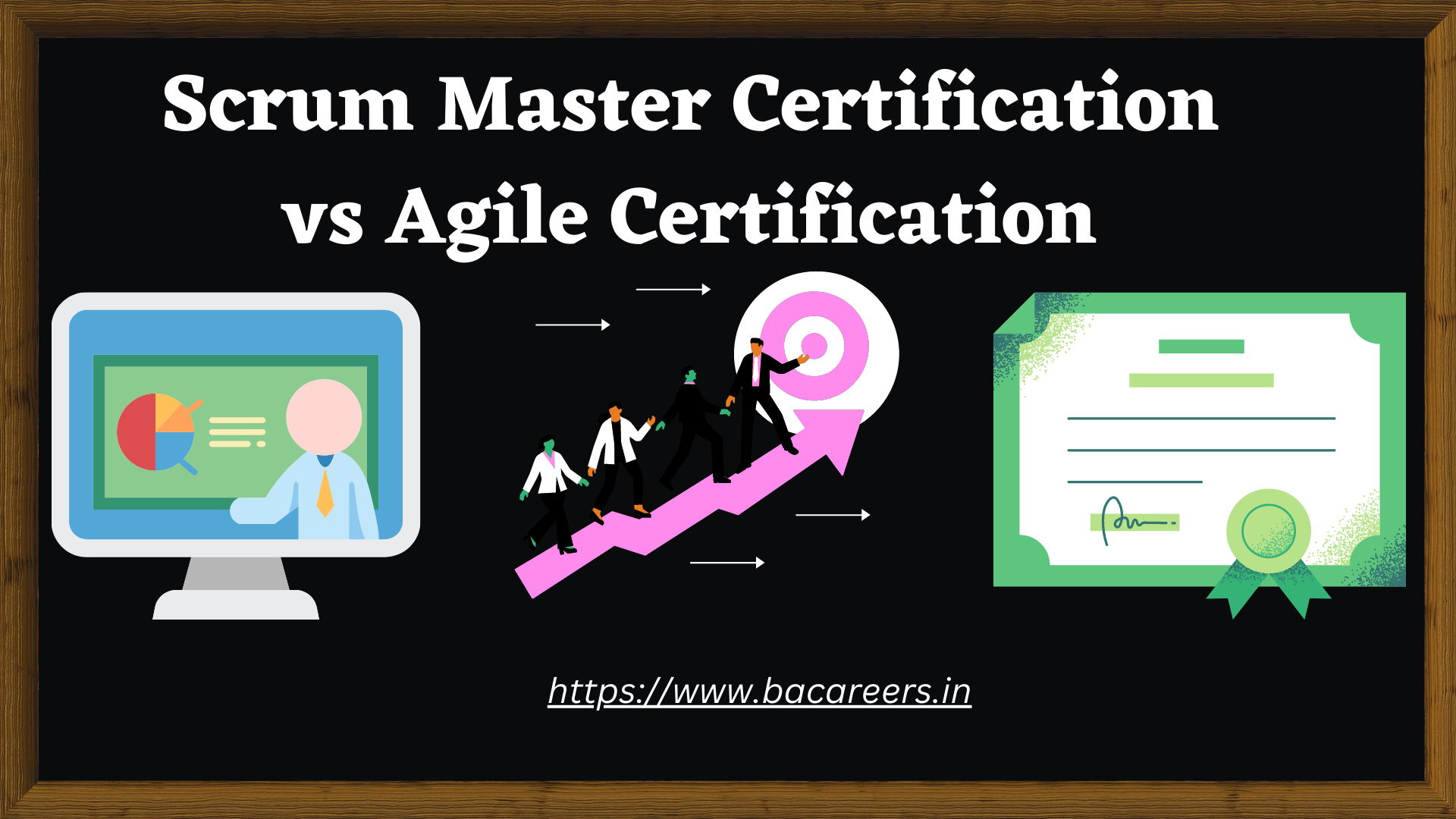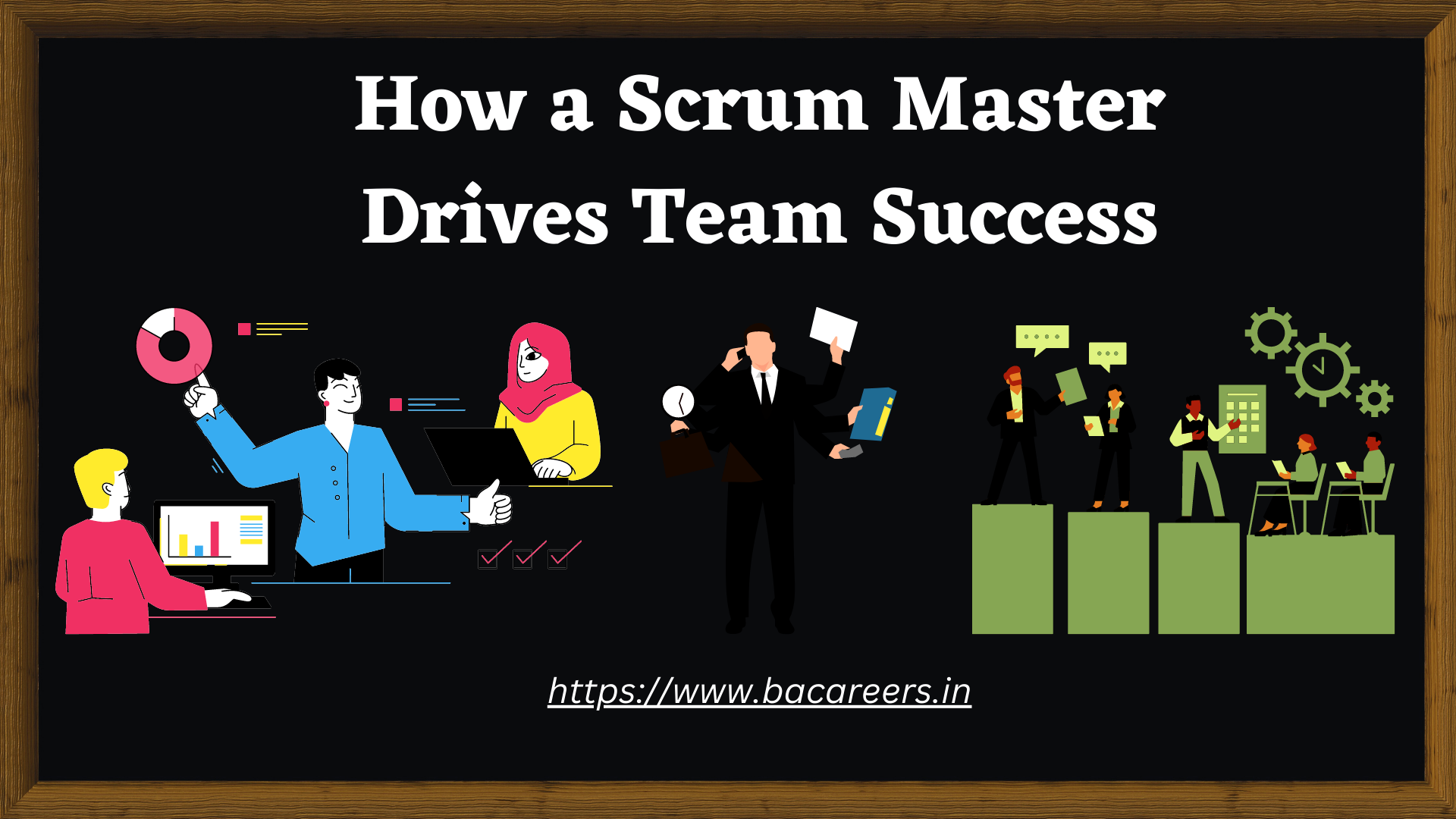Scrum Master Certification vs Agile Certification-Which One is Right for You?
If you’re looking to advance your career in the world of project management and software development, you may have come across two similar-sounding certification programs: Scrum Master Certification and Agile Certification. At first glance, it can be difficult to distinguish between the two and decide which one is the right fit for you. However, understanding the differences between these two programs can make a big difference in your career trajectory. As companies continue to adopt agile methodologies, having a certification in either Scrum or Agile can make you a valuable asset to any team. In this article, we’ll explore the similarities and differences between Scrum Master Certification and Agile Certification, and help you decide which one is the best fit for your career goals.
Topics Covered:
Understanding Scrum and Agile methodologies
The role of a Scrum Master
The benefits of Scrum Master Certification
What is Agile Certification?
The benefits of Agile Certification
Differences between Scrum Master and Agile Certifications
Which one is right for you?
How to prepare for Scrum Master Certification
How to prepare for Agile Certification
Conclusion

Understanding Scrum and Agile Methodologies
Before we dive into the details of Scrum Master Certification and Agile Certification, it’s important to have a solid understanding of Scrum and Agile methodologies. Both Scrum and Agile are iterative and incremental approaches to software development. Agile is a broad umbrella term that encompasses many different methodologies, including Scrum, Kanban, and Extreme Programming (XP), among others.
Agile methodologies prioritize collaboration, flexibility, and rapid iteration over rigid processes and documentation. The goal is to deliver high-quality software that meets customer needs quickly and efficiently. Scrum is one of the most popular Agile methodologies, and it’s based on the idea of small, self-organizing teams working in short sprints to deliver working software.
The Role of a Scrum Master
The Scrum Master is a critical role in the Scrum methodology. The Scrum Master is responsible for facilitating the Scrum process, removing any impediments that are blocking the team’s progress, and ensuring that the team stays focused on its goals. The Scrum Master is not a project manager or team leader, but rather a servant-leader who helps the team achieve its objectives.
The Scrum Master is responsible for organizing and leading the daily Scrum meetings, which are short, stand-up meetings that are held every day to keep the team on track and identify any issues that need to be addressed. The Scrum Master is also responsible for organizing and leading the sprint planning meetings, sprint reviews, and sprint retrospectives.
The Benefits of Scrum Master Certification
Scrum Master Certification is designed to help professionals gain a deep understanding of the Scrum methodology and the role of the Scrum Master. By becoming certified, you’ll gain the knowledge and skills you need to lead a Scrum team effectively and deliver high-quality software. Scrum Master Certification is recognized by many companies and organizations, and it can help you stand out in a competitive job market.
One of the biggest benefits of Scrum Master Certification is that it helps you develop a strong understanding of Agile methodologies and how they can be applied in software development. This knowledge is invaluable in today’s fast-paced, rapidly changing business environment, where companies are looking for ways to deliver high-quality software quickly and efficiently.
What is Agile Certification?
Agile Certification is a more general certification that covers a broad range of Agile methodologies, including Scrum, Kanban, and XP. Agile Certification is designed to help professionals gain a deep understanding of Agile principles and practices, and how they can be applied in software development.
Agile Certification is recognized by many companies and organizations, and it can help you demonstrate your knowledge and skills in Agile methodologies. It can also help you stand out in a competitive job market, as more and more companies are adopting Agile methodologies to deliver high-quality software quickly and efficiently.
The Benefits of Agile Certification
One of the biggest benefits of Agile Certification is that it helps you develop a strong understanding of Agile methodologies and how they can be applied in software development. This knowledge is invaluable in today’s fast-paced, rapidly changing business environment, where companies are looking for ways to deliver high-quality software quickly and efficiently.
Agile Certification also helps you develop a broad range of skills, including project management, team collaboration, and communication. These skills are highly valued by employers, and they can help you advance your career in a variety of roles, including project manager, Scrum Master, Agile coach, and more.
Differences Between Scrum Master and Agile Certifications
While Scrum Master Certification and Agile Certification share many similarities, there are some key differences between the two. Scrum Master Certification is focused specifically on the Scrum methodology and the role of the Scrum Master, while Agile Certification covers a broad range of Agile methodologies and practices.
Scrum Master Certification is more focused and in-depth than Agile Certification, and it’s designed for professionals who want to specialize in the Scrum methodology. Agile Certification, on the other hand, is more general and covers a broader range of Agile methodologies, making it a good fit for professionals who want a more general understanding of Agile principles and practices.
Which One is Right for You?
Deciding which certification is right for you depends on your career goals and your interests. If you’re interested in specializing in the Scrum methodology and the role of the Scrum Master, then Scrum Master Certification is the right choice for you. Scrum Master Certification is focused, in-depth, and designed to help you become an expert in the Scrum methodology.
If you’re interested in gaining a more general understanding of Agile methodologies and practices, then Agile Certification is the right choice for you. Agile Certification covers a broad range of Agile methodologies and practices, making it a good fit for professionals who want a more general understanding of Agile principles and practices.
How to Prepare for Scrum Master Certification
Preparing for Scrum Master Certification requires a combination of studying, practical experience, and professional development. Here are some steps you can take to prepare for Scrum Master Certification:
- Read the Scrum Guide and other relevant literature to gain a deep understanding of the Scrum methodology.
- Participate in Scrum training courses or workshops to gain practical experience working with Scrum teams.
- Join a Scrum community or user group to network with other Scrum professionals and learn from their experiences.
- Consider pursuing a Scrum Master Certification program to gain a recognized credential.
How to Prepare for Agile Certification
Preparing for Agile Certification requires a similar combination of studying, practical experience, and professional development. Here are some steps you can take to prepare for Agile Certification:
- Read books and articles about Agile methodologies to gain a broad understanding of Agile principles and practices.
- Participate in Agile training courses or workshops to gain practical experience working with Agile teams.
- Join an Agile community or user group to network with other Agile professionals and learn from their experiences.
- Consider pursuing an Agile Certification program to gain a recognized credential.
Conclusion
Scrum Master Certification and Agile Certification are both valuable credentials that can help you advance your career in the world of project management and software development. Deciding which certification is right for you depends on your career goals and interests. If you’re interested in specializing in the Scrum methodology and the role of the Scrum Master, then Scrum Master Certification is the right choice for you. If you’re interested in gaining a more general understanding of Agile methodologies and practices, then Agile Certification is the right choice for you. Whatever you choose, remember that both Scrum and Agile methodologies are becoming increasingly important in today’s fast-paced, rapidly changing business environment, and having a certification in either one can make you a valuable asset to any team.
Related Articles:

Business Analyst , Functional Consultant, Provide Training on Business Analysis and SDLC Methodologies.

